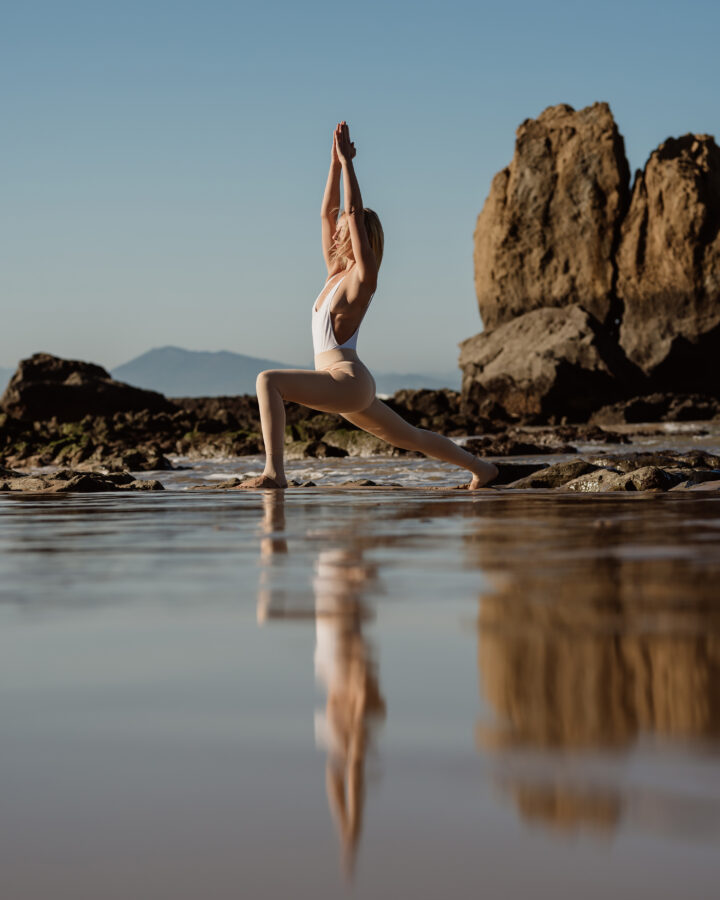3 Exercises That Quietly Rewire Your Brain for Deep Sleep

New research suggests that Tai Chi, yoga, and jogging may be more effective than sleeping pills for treating insomnia, with fewer side effects.
If you’ve ever battled insomnia, you know the toll it takes on your body and your mind. While medications and cognitive behavioral therapy (CBT) have long been standard treatments, a new large-scale study published in BMJ Evidence-Based Medicine suggests that something as simple as moving your body might be just as effective, without the side effects or access barriers.
Researchers conducted a network meta-analysis of 22 randomized controlled trials involving 1,348 participants and 13 different interventions for insomnia. Seven of those were exercise-based. The top three? Tai Chi, yoga, and walking or jogging. Compared to usual care and even CBT, these forms of movement significantly improved sleep quality, duration, and efficiency, while reducing nighttime awakenings and how long it takes to fall asleep.
Which Exercises Are Best for Your Sleep?
While cognitive behavioral therapy (CBT) remains the gold standard for treating insomnia, it isn’t always easy to access. Exercise-based interventions, on the other hand, are low-cost, widely available, and increasingly backed by science. Here’s how the top approaches compare, so you can choose the one that fits your body and lifestyle best.
1) Tai Chi: This slow, flowing movement practice emerged as a quiet powerhouse for sleep. People who practiced Tai Chi increased their total sleep time by more than 50 minutes per night and spent over 30 fewer minutes awake after falling asleep. On average, it helped people fall asleep 25 minutes faster. Many of these improvements persisted for up to two years, suggesting that Tai Chi not only soothes the nervous system in the short term but may also support lasting changes in sleep architecture.
- Why It Works: Tai Chi is a form of meditative movement that reduces hyperarousal in the nervous system, promotes emotional regulation, and may reduce [in-fluh-mey-shuhn]nounYour body’s response to an illness, injury or something that doesn’t belong in your body (like germs or toxic chemicals).Learn More, common drivers of chronic insomnia.
2) Yoga: Yoga delivered the largest boost in total sleep time: nearly two additional hours per night! It also improved sleep efficiency by about 15 percent, helping people spend more of their time in bed actually sleeping. Participants experienced fewer nighttime awakenings and fell asleep nearly half an hour faster on average.
- Why It Works: Yoga integrates breath, movement, and focused attention. It’s been shown to lower anxiety and depressive symptoms, likely by shifting brain chemistry and dampening stress responses.
3) Walking or Jogging: Walking and jogging stood out for reducing insomnia severity and improving how people felt during the day. Participants reported major improvements on the Insomnia Severity Index, dropping nearly 10 points, a clinically significant change.
- Why It Works: The mood-lifting and energy-regulating effects of steady movement likely play a role here, as walking and jogging may promote melatonin production and support deeper, more restorative sleep..
Bonus: CBT (Cognitive Behavioral Therapy): CBT continues to be the most widely recommended non-drug treatment for insomnia, and for good reason. It has consistently been shown to improve every aspect of sleep, from helping people fall asleep faster to reducing how often they wake up and increasing overall sleep duration. However, the availability of CBT remains a challenge for many, making accessible movement-based approaches an important and empowering alternative.
- Why It Works: CBT targets racing thoughts, unhelpful sleep behaviors, and conditioned arousal by retraining both mind and habit. Through techniques like [sleep hy-jeen]nounHabits that promote quality sleep.Learn More, stimulus control, sleep restriction, and cognitive reframing, CBT helps calm the brain’s hyperactive sleep-wake system. Over time, it restructures the mental loops that keep you up at night, replacing anxiety and frustration with trust in your body’s natural ability to rest.
Whether you’re drawn to mindful movement or moderate cardio, the evidence is clear: consistent physical activity, especially when it calms the nervous system, can offer meaningful, lasting relief from insomnia.
A Nightly Movement Routine for [deep sleep]nounThe most restorative sleep stage where the body repairs and grows.Learn More
Movement can rewire your brain for better sleep, but you don’t need a two-hour yoga class to feel the benefits. Here’s a step-by-step routine you can actually follow tonight, based on the best research out there.
Morning Reset (Daytime Foundation)
- First, try to get sunlight exposure soon after you wake up. This helps regulate your [ser-kay-dee-uhn rith-uhm]nounYour body’s internal clock that regulates sleep and wake cycles.Learn More and boosts melatonin production at night.
- 20–30 minutes of walking or light jogging outdoors. Add some steady movement to your morning sunlight routine to reset your circadian rhythm and boost melatonin later at night.
- Optional: Add 2–3 short strength exercises (squats, push-ups, or light weights). [strength tray-ning]nounResistance-based exercise to build muscle and support healthy aging.Learn More earlier in the day has been shown to improve sleep quality more than cardio alone.
Evening Wind-Down (1–2 Hours Before Bed)
- 10 minutes of Tai Chi or gentle yoga. Flowing, mindful movement calms the nervous system and reduces nighttime wake-ups.
- Try [yoh-guh nee-drah]nounA deep relaxation practice often referred to as yogic sleep.Learn More. Just 15 minutes of this guided relaxation practice can cut sleep latency by 37% (yes, science measured it).
- Sauna or warm shower. Shower (or sauna or bath) 60-90 minutes before bed raises core temperature, signaling the body to sleep mode.
Final 30 Minutes (Pre-Sleep Ritual)
- Stretch and breathe. Do 5 minutes of light stretching or restorative poses (child’s pose, legs-up-the-wall) while practicing slow nasal breathing. This lowers [kawr-tuh-sawl]nounA hormone that helps manage stress, energy, and alertness.Learn More and signals your body it’s safe to rest.
- Lights dimmed, screens off. Pair movement with environmental cues to lock in your body’s “sleep
Pro tip: Consistency matters more than intensity. Daily routines will help prime your body for sleep. And even 10–20 minutes of mindful movement most days can improve deep sleep over time.
Read This Next:
The information provided in this article is for educational and informational purposes only and is not intended as health, medical, or financial advice. Do not use this information to diagnose or treat any health condition. Always consult a qualified healthcare provider regarding any questions you may have about a medical condition or health objectives. Read our disclaimers.

